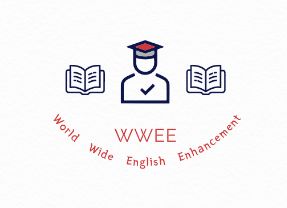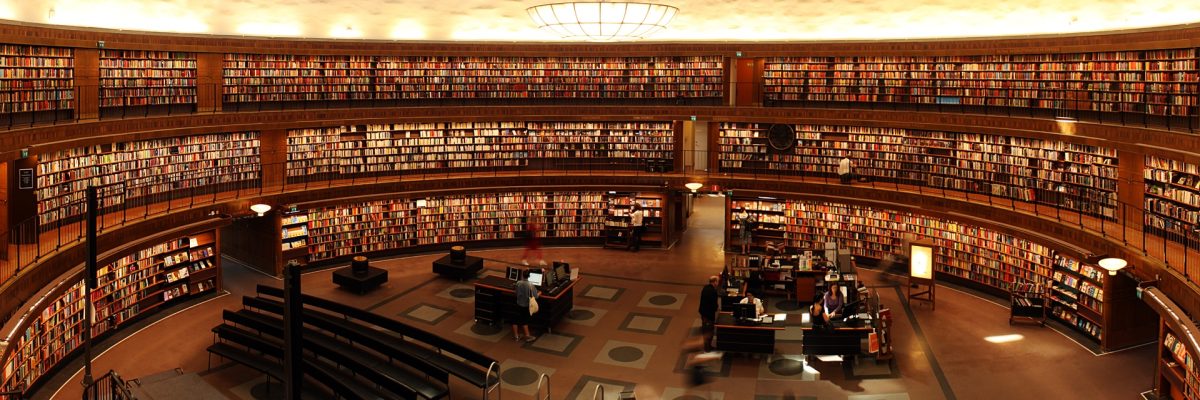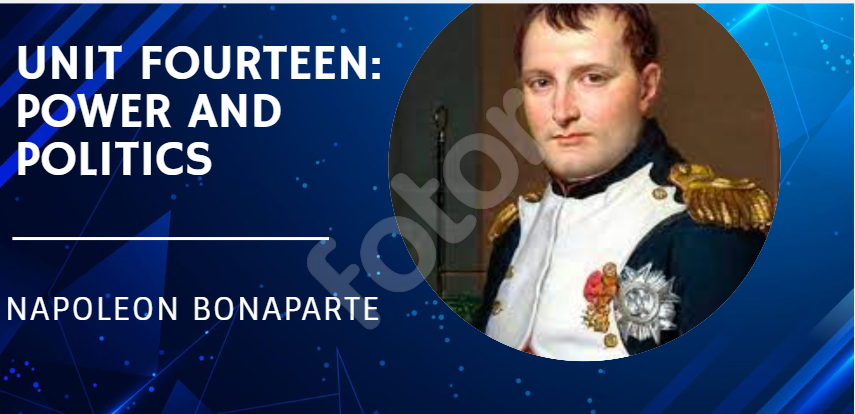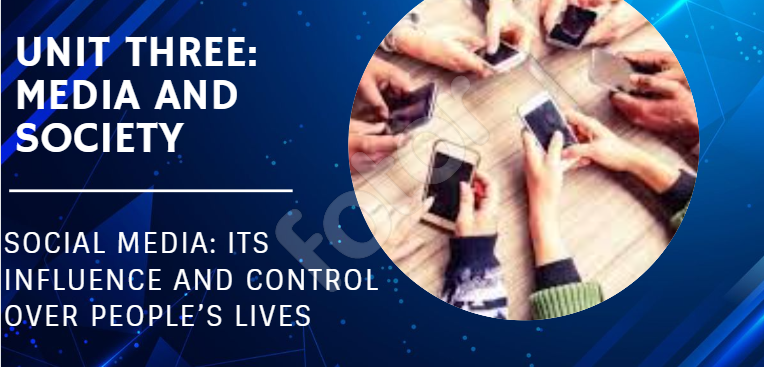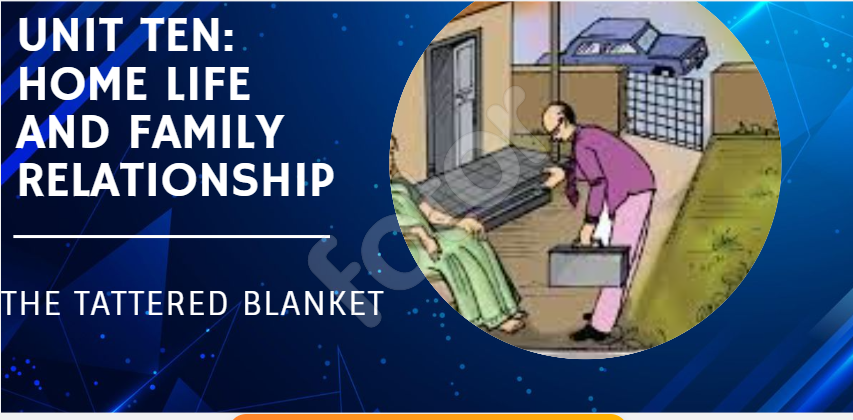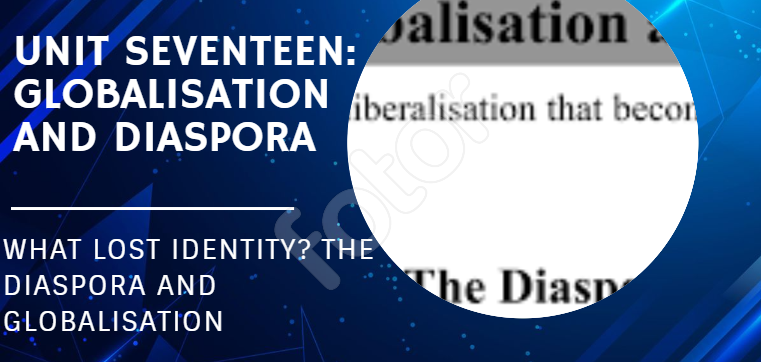Contents
Reading
Napoleon Bonaparte
Ways with Words
A. Choose the correct meaning of the underlined word.
a. Many portraits of Napoleon show him with his right hand placed inside his coat.
Ans: sketch
b. Napoleon won one victory after another, defeating the Austrians in eighteen battles.
Ans: beating
c. Portrait painters thought this pose made men look more dignified.
Ans: good-looking
d. They announced France a republic.
Ans: official declared
e. Napoleon conquered Austria in 1805.
Ans: triumphed over
f. There was no place to house his soldiers in the bitter Russian winter.
Ans: cold
g. Napoleon was humiliated when he was defeated.
Ans: shamed
B. Guess the meanings to these words from the text. Check in your dictionary and make sentences of your own.
| Words | Meaning | Sentence |
| violent | causing hurt | She thought the film far too violent to show to children. |
| execute | kill somebody as a legal punishment | The prisoners were executed by firing squad. |
| ancient | very old | This philosophy dates back to ancient Greece. |
| alliance | a group of countries, political parties, or people who have agreed to work together because of shared interests or aims | NATO is sometimes called the Atlantic Alliance. |
| brilliant | very intelligent or skillful | His brother is brilliant at football. |
| genius | very great and rare natural ability or skill | Einstein was a mathematical genius. |
| consul | an official appointed by a state and is the representative of his or her country in a foreign city | His mother was a confidential secretary to the Russian Consul. |
| invading | entering a country by force with large number of soldiers in order to take control of it | Arthur tried to seize Poitou while Philip Augustus was invading Normandy. |
D. Find the meanings of the following noun phrases and use them in sentences.
| Words | Meaning | Sentence |
| Vice-President | an official or executive ranking below and deputizing for a president | Vice-President resigned office at the restoration. |
| Editor-in-Chief | publication’s editorial leader | The editor in chief embroidered the original story beyond recognition. |
| Deputy Editor-in-Chief | editing professional who may work in print, Internet, or video media | Jones was named editor in chief of HarperCollins Publishers four months ago. |
| Deputy-Mayor | an elective or appointive office of the second-ranking official that is present in many, but not all, local governments. | The power to appoint the deputy mayor from the assembly gives the mayor unacceptable patronage. |
| Joint-secretary | a person elected as Joint Secretary of the Alumni, under the constitution. | Joint-secretary has been arrested due to bribary. |
| Under-Secretary | a subordinate official, in particular | She served as under-secretary of state for health and social care |
| Deputy-Prime Minister | a government minister who can take the position of acting prime minister when the prime minister is temporarily absent. | The deputy prime minister presides and chairs the cabinet in the absence of prime minister. |
| Vice-Chancellor | a deputy chancellor who discharges most of its administrative duties. | Two years later he was appointed vice-chancellor, in which capacity he served until his death. |
| Attorney-general | the principal legal officer who represents the Crown or a state in legal proceedings and gives legal advice to the government. | He was elected state attorney general in 1932, and served until becoming governor in 1937. |
| Ex-president | a former president | The ex president invested in it all his available property, but paid no attention to the management of the business. |
| Sub-editor | a person who checks and makes changes to texts, especially for a newspaper | Vaughan came to know him at St Bede’s and had invited him to become sub-editor of The Tablet in 1895. |
| co-author | a joint author | He is also co-author of a recent book on critical thinking for students of medicine. |
Comprehension
Answer these questions.
a. Where was Napoleon from?
Ans: Napoleon was from France.
b. Why did poor and middle-class people declare France a republic?
Ans: They were tired of paying heavy taxes for the luxurious life of the king and his nobles so, poor and middle-class people declare French a republic.
c. When did Napoleon declare himself emperor of France?
Ans: Napoleon declared himself emperor of France in 1804.
d. What did he do when he ruled France?
Ans: He restored law and order after the revolution. He recognized the French government and the Bank of France. He built many fine roads and improved the old ones. He turned Paris into a beautiful city with wide streets, fine bridges, and beautiful buildings and monuments, such as the Arc de Triomphe. More importantly, he improved the laws.
e. Which countries did he rule when he was the emperor?
Ans: He ruled Italy, Switzerland and Germany, when he was the emperor.
f. What was the main cause of his destruction?
Ans: The main cause of his destruction was Invasion of Russia.
g. How did his rule as emperor end in Europe?
Ans: His rule as emperor end in Europe by gathering the Armies.
h. How could Napoleon have been an even greater ruler?
Ans: If he hadn’t been driven by his love of power Napoleon has been an even greater ruler.
Critical Thinking
a. What can be the qualities of a great leader? Can a great leader remain in power for long in a country? Discuss
Ans: The world is full of successful political leaders but unfortunately, very few live up to the leadership ideals. In fact, many political leaders lack the most important leadership qualities. History – and present day – shows that there are still a few who came closer to the leadership ethics, and are good examples of an impressive political leader.
Qualities of a good political leader:
- accountability
- Honesty
- Compassion
- Integrity
- Flexibility
- Confidence
